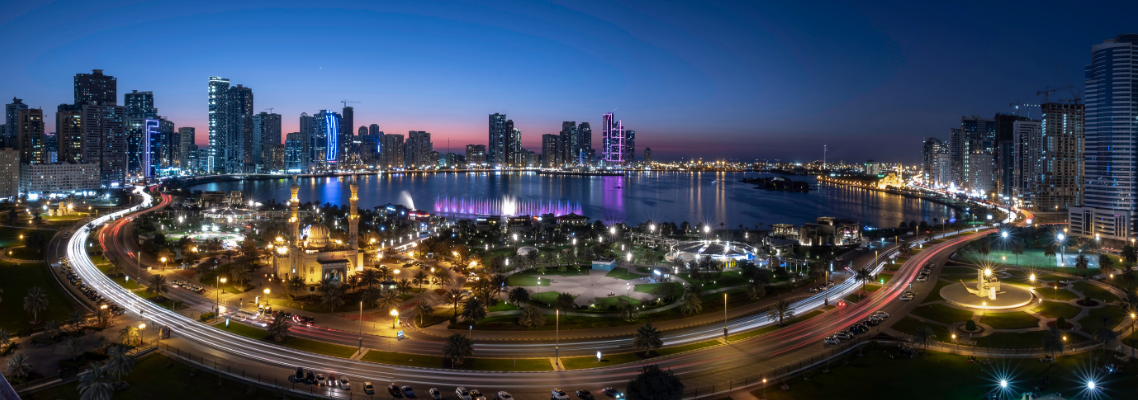Earlier this week London Book Fair Director Jacks Thomas chaired a session on Freedom to Publish as part of the Publishers Conference held in Sharjah in the United Arab Emirates (UAE) ahead of the Sharjah International Book Fair which runs until 9 November. The session’s inclusion on the agenda was in itself significant and speakers included Mahmoud Lutfi, whose brother Khaled is still in prison in Egypt for publishing a title that the government did not like. Khaled received the International Publishers Association Prix Voltaire, its freedom to publish prize, earlier this year.
While expressing sadness at the plight of his brother, Mahmoud suggested that today’s multiple information sources means that writers are making their voices heard in the region. “Imprisonment as a punishment in publishing cases exists in many of our Arab countries today and needs to be reconsidered [in the light of] globalisation and cultural openness,” he said. “It is impossible to ignore the media pluralism and wide variety of information sources which make any attempts to control the diversity of opinion impossible.”
There were wise words too from Isobel Abulhoul, founder and director of the Emirates Airlines Festival of Literature. Echoing Lutfi’s words she noted that very often “the laws don’t keep up with changes in society” and she added that it was better to work within the legal constraints of each country. “Every country has its own unique culture and history,” she said. “One size does not fit all. What may be acceptable in one country may not be in another.”
Of course, among the most recent attempts to ban books have occurred in the US where there was all that presidential fire and fury over Michael Wolff’s Fire and Fury. Right now the US book community is awaiting the arrival of A Warning, the exposé by an anonymous insider in President Trump’s White House which Hachette imprint Twelve publishes on 19 November. One wonders if the President’s lawyers are preparing another raft of ‘Cease and desist’ letters? Or ‘Cease and reprint’ as they might better be called, judging by the ‘success’ of his previous attempts to silence voices he doesn’t like.
Incidentally, Twelve’s website contains a list entitled ‘12 Things to Remember About Twelve’. Number 3 is: ‘Each book will be carefully edited, designed and produced’. And the other books from Hachette? Oh we just knock ‘em out any old how!
Meanwhile, as those impeachment voices grow, US publishing has a counter move. New house Republic Book Publishers has set out its shingle (as they say in that part of the world) promising to publish conservative voices in areas like politics, history and religion. Its founders include Al Regenery, publisher of American Spectator magazine.
Japan’s Kinokuniya continues its slow global expansion. It has 107 shops worldwide now, the bulk of which are in Japan (69) and the US (21). In March 2020 it will open in Abu Dhabi – its second shop in the UAE – and its director of import and distribution Hiroshi Sogo says it is looking for opportunities in Malaysia and Australia. He says business in the US is “growing very nicely” and that it is “possible” that the company will open more stores in the US. “I believe that physical bookshops will never die,” he says, “partly because physical, printed books will never completely disappear. Books will have stronger constituencies, where people are willing to support physical bookshops because they value the physicality of books, the curation, the serendipitous experience, the conversations, the recommendations…”
California-based travel publisher Patagonia Books is the latest house to make a green move. It has announced it will no longer print ARCs (advance reading copies) but will move to digital ARCs instead. “The printing and distribution of ARCs requires unnecessary expenditure of natural resources – paper to print, fossil fuel to distribute,” said Patagonia’s director Karla Olson. “In this era of climate crisis, electronic ARCs ought to be the new standard, as well as the move to 100% post-consumer recyclable paper for all books, industry-wide.”
International book fairs are always fascinating for discovering initiatives in other countries one might not ordinarily hear about. It’s the kind of thing The London Book Fair’s International Excellence Awards was set up to recognise and succeeds in doing so admirably. So in Sharjah this week, it was interesting to hear from philanthropic body Dubai Cares which has provided $800,000 for a variety of book-related projects across Africa including establishing libraries in Kakuma in Kenya, the world’s largest refugee camp.
Established by the UNHCR in 1992 the camp is home to refugees and asylum seekers from DRC Congo, Rwanda, Burundi, South Sudan, Sudan, Somalia and Uganda among others. As well as establishing libraries, the fund will also add to the efforts done by other organizations who work to supply the camp with books for its many children.
And lastly, a final, final goodbye to outgoing Booksellers Association Chief Executive Tim Godfray whose fabulous party at the London Library on Wednesday was due to be attended – at the time of writing – by some 200 guests, including a magician, an artist, a harpist and a gin bar. This column and the entire industry wishes him well.

Roger Tagholm writes our Snapshot of the Week.

